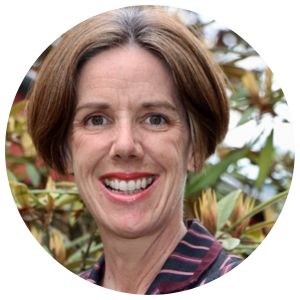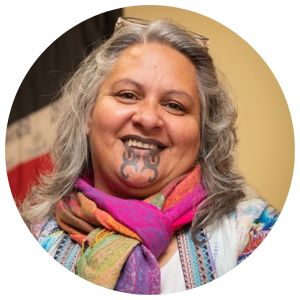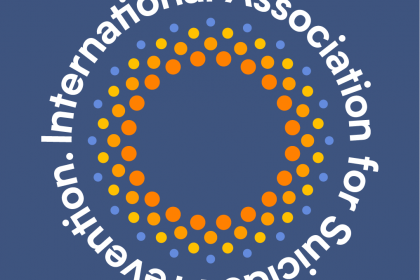
Australasian Research Workshop 2024
The 2024 IASP Australasian Research Workshop has a fantastic line-up of experts and leaders and aims to develop collaborations and discuss the challenges faced in suicide prevention.
Speakers




Sarah Hetrick & Tania Cargo
Dr Tania Cargo (Ngāti Maru, Ngāti Manu, Ngāpuhi) is a clinical psychologist and Senior Lecturer of Child and Adolescent Mental Health in the Department of Psychological Medicine, and in the Clinical Psychology Training Programme, School of Psychology, University of Auckland. Dr Sarah Hetrick is a clinical psychologist, Associate Professor of Youth Mental Health, and Principal Advisor Suicide Prevention Office Manatū Hauora Ministry of Health.
Tania and Sarah are the co-theme leaders of the Resilient Teens theme of A Better Start E Tipu E Rea National Science Challenge, funded by the Ministry of Business, Innovation and Employment. They work within an He Awa Whiria framework, co-leading research projects. Along with Dr Sarah Fortune, they established the Suicide Prevention Aotearoa Centre, Faculty of Medical and Health Sciences at the University of Auckland.
Tania Papalii
Tania Papalii (Ngāi Tai ki Tāmaki/Ngāpuhi) is a Principal Advisor Suicide Prevention Office Manatū Hauora Ministry of Health. She was the Pou Manawaroa – Suicide Prevention Lead for Te Tai Tokerau for over 10 years and a member of the Suicide Mortality Review Committee and Ngā Pou Arawhenua – Māori advisory committee to the mortality review committees for the Health Quality and Safety Commission.
Tania believes in empowering whānau, hapū, iwi and values the strength and mātauranga held within these networks.
Sarah Fortune
Dr Sarah Fortune is a clinical psychologist, suicide epidemiologist, senior researcher and Director of Population Mental Health, School of Population Health, University of Auckland.
She was the Chair of the Suicide Mortality Review Committee for the Health Quality and Safety Commission and is the co-lead (with Tania Cargo and Sarah Hetrick) of Suicide Prevention Aotearoa, a Centre of excellence in the Faculty of Medical and Health Sciences, University of Auckland.
Alayne Mikaere Hall
Associate Professor Alayne Mikaere-Hall (Ngāti Whatua, Te Rarawa, Waikato-Tainui) is a senior lecturer and Associate Head of School Māori Advancement within the School of Public Health & Interdisciplinary Studies and Co-director Taupua Waiora Research Centre Auckland University of Technology.
She was the Co-Chair of the Child Youth Mortality Review Committee 2020-2023 and is a member Ngā Pou Arawhenua – Māori advisory committee for the Health Quality and Safety Commission. Suicide has many causes. Prevention for young Māori and their whānau requires a focus on the broader societal factors which shape the environments that pēpi, tamariki and rangatahi must grow. To help all young Māori we must shape the conditions that enable mokopuna and their whānau to thrive.
Glossary
Hapū – subtribe, large kinship group, pregnant
Iwi – tribe, extended kinship group, nation
Mātauranga – knowledge, wisdom, understanding
Mokopuna – grandchild, grandchildren
Pēpi – baby, infant, young child
Rangatahi – younger generation, youth
Tamariki – young, youthful
Whānau – extended family, family group, to be born.



Lynne Russell
Dr Lynne Russell (Ngāti Kahungunu, Rangitāne, Kāi Tahu, Ngāti Porou) is a proud grandmother and Mum. She is an Associate Professor at Te Herenga Waka–Victoria University of Wellington. She has been an academic researcher with Te Hikuwai Rangahau Hauora (Health Services Research Centre) since 2005.
For the last 15 years Lynne has used her lived experience of suicide loss to focus her research on Indigenous suicide prevention and postvention.
Witi Ashby
Kaumātua Witeria (Witi) Ashby (Ngāti Hine, Ngāti Kawa) has a long history of work in suicide prevention, including many years with Suicide Prevention Information of New Zealand (SPINZ) and with the Mental Health Foundation of New Zealand.
He is now the Pou Tikanga for Te Rau Ora, a national organisation focused on transforming the Māori health and social service workforces, which also houses the Centre for Māori Suicide Prevention.
Linda Bowden
Linda Bowden (BHSc (OT); MHsc) is a PhD Candidate at the University of Auckland supervised by Associate Professor Sarah Hetrick, Dr Sarah Fortune and Professor TerryAnn Clark.
Linda’s PhD focuses on the best practice environment for managing self-harm in schools, investigating the epidemiology of self-harm and examining enablers and barriers of implementation of best practice. While embarking on her PhD, Linda remains a senior mental health clinician with over 15 years experience in child, and youth mental health with a focus on suicide prevention and postvention and community co-design projects. She contributes to multiple research projects as well as policy initiative within Government. Linda has an interest in addressing inequities in healthcare and systems design work.
International Speakers

Keith Hawton
Professor of Psychiatry and Director of the Centre for Suicide Research at Oxford University. For more than forty years he and his research group have been conducting investigations concerning the causes, treatment, prevention and outcome of suicidal behaviour.

Jane Pirkis
Professor Jane Pirkis is the Director of the Centre for Mental Health at the University of Melbourne. She has worked in the suicide prevention field for over 25 years and is particularly well-known for her work on suicide and the media.

Matthew Spittal
Matthew is Professor of Epidemiology and Biostatistics in the Centre for Mental Health at the University of Melbourne.

Katie McGill
Dr Katie McGill is a clinical psychologist at the University of Newcastle who has been working in suicide prevention and mental health promotion for over 20 years.



